Japan — Toshikoshi soba

Ōmisoka, or New Year’s Eve, is a special time for the Japanese as during this moment they reflect on their past and prepare for the upcoming year. The traditional bowl of delicious buckwheat noodles, called a year-crossing noodle, is eaten during this time. Soba is easy to cut with chopsticks, that’s why it symbolizes the custom of letting go of the hardships of the year.
Denmark — Risalamande

Its base is a soft rice pudding mixed with chopped almonds and vanilla whipped cream. To add more taste and color, they decorate it with cherry sauce. Typically, it’s served during dinner after the main course.
Greenland — Mattak
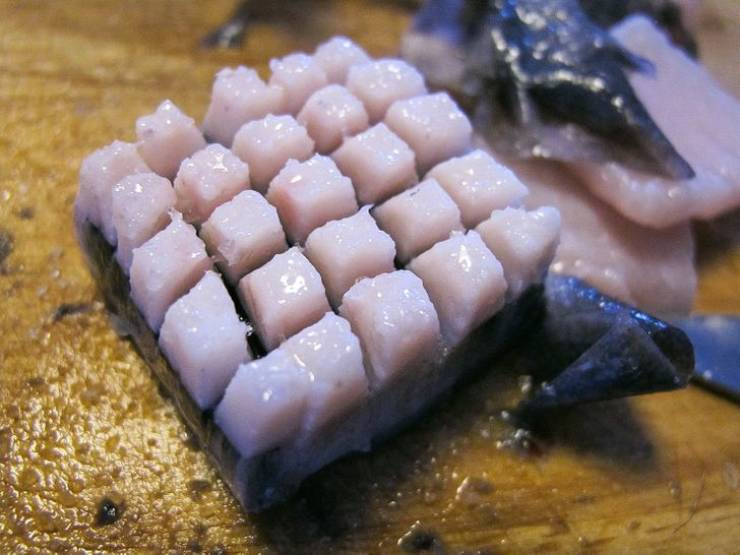
The Greenlanders call this unusual delicacy mattak, however, it can also be called muktuk. It’s made out of bowhead whales, beluga, or narwhal and is typically eaten raw. It’s very oily, has a nutty taste, and contains a lot of vitamin C!
The Philippines — Puto bumbóng
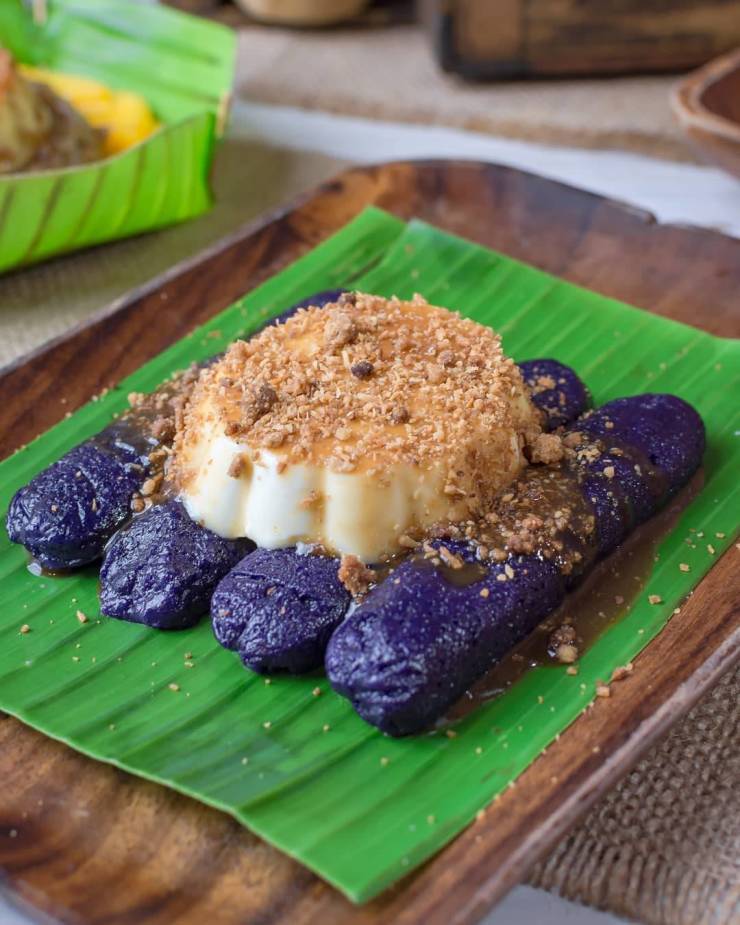
This is a very popular Christmas season dessert that is usually served in the morning. It is made out of a special type of glutinous rice that has a deep purple color. After preparation, it’s put into bamboo tubes, steamed, and served on banana leaves.
Sweden — Jansson’s temptation
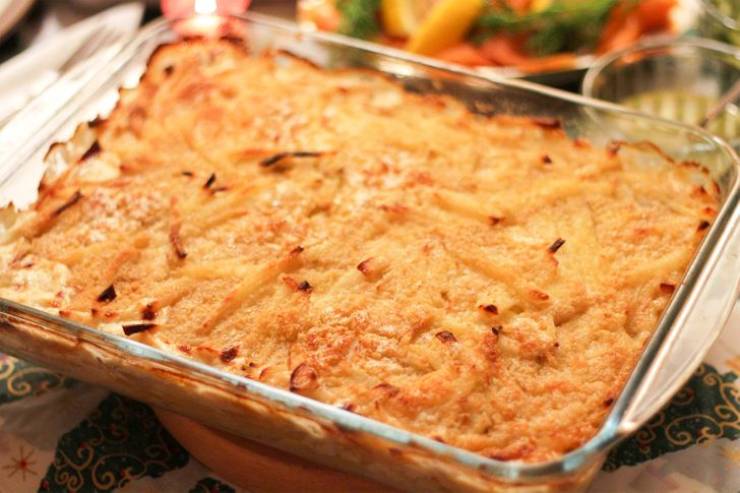
The traditional casserole, known as Janssons frestelse in Swedish, is an absolute Christmas Eve hit in Sweden. It’s made of layered potatoes, anchovies (or sprats), onions, bread crumbs, and heavy cream.
Czech Republic — Houbový kuba
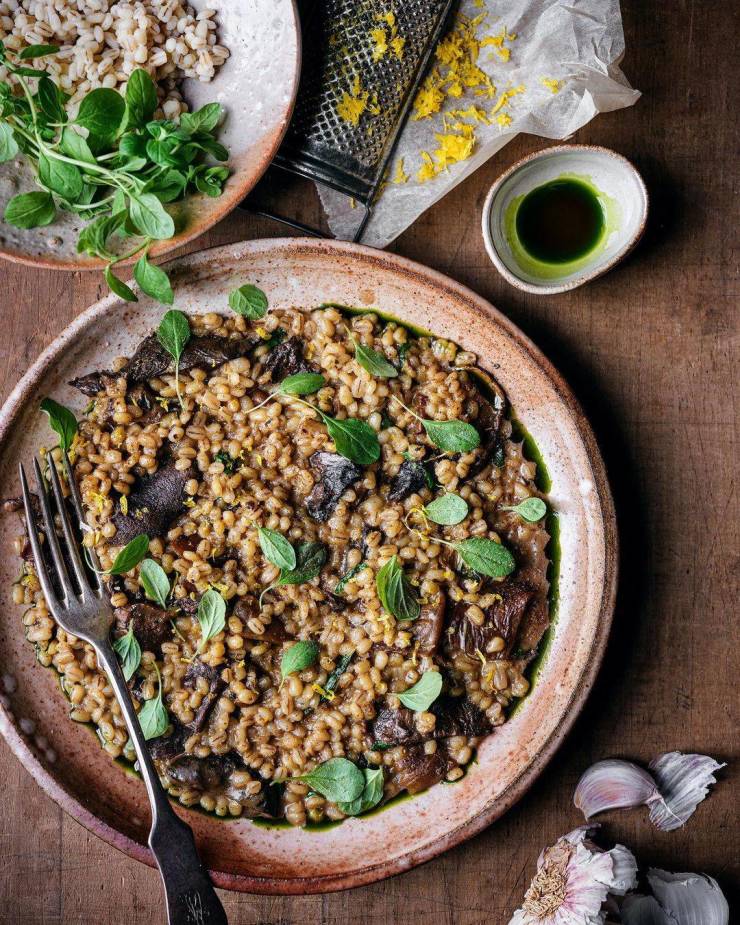
This mushroom and barley risotto has been eaten for many centuries. People used to fast on Christmas, and a meatless kuba became the perfect dish for this occasion. Ingredients like fried onion, garlic, fat, and black pepper are added for a richer taste.
France — Escargots

The name of the dish literally means “edible snail,” and it has become one of the most iconic French dishes. During Christmas, they are usually served as a starter topped with garlic and parsley butter.
The Netherlands — Oliebollen
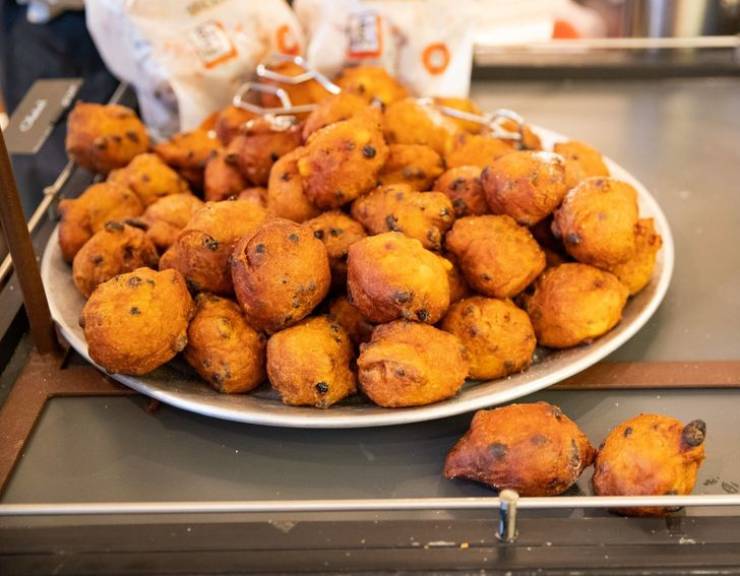
It’s hard to imagine the holidays in the Netherlands without this popular snack. Its name can be literally translated as “oil balls.” To make them, a scoop of dough is dropped into hot oil before it’s deep-fried and then served with sugar icing.
Poland — Gołąbki
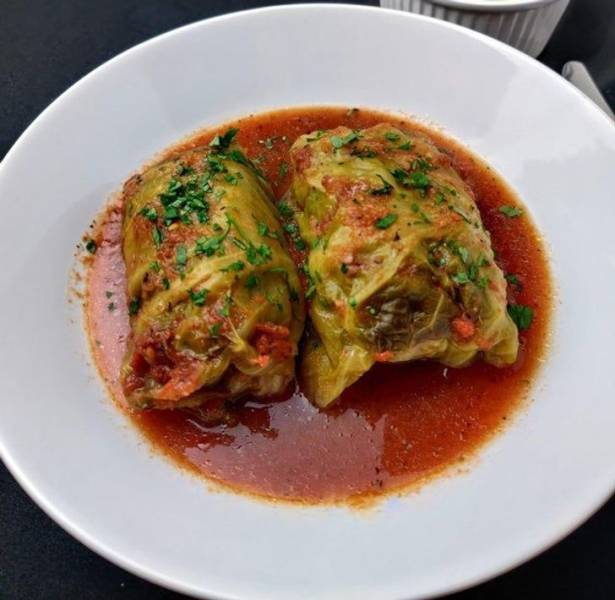
People from different cultures enjoy this dish that consists of ground meat wrapped in cabbage. The Poles serve them dipped in tomato sauce during the Christmas main course.
China — Eight-Treasure Rice
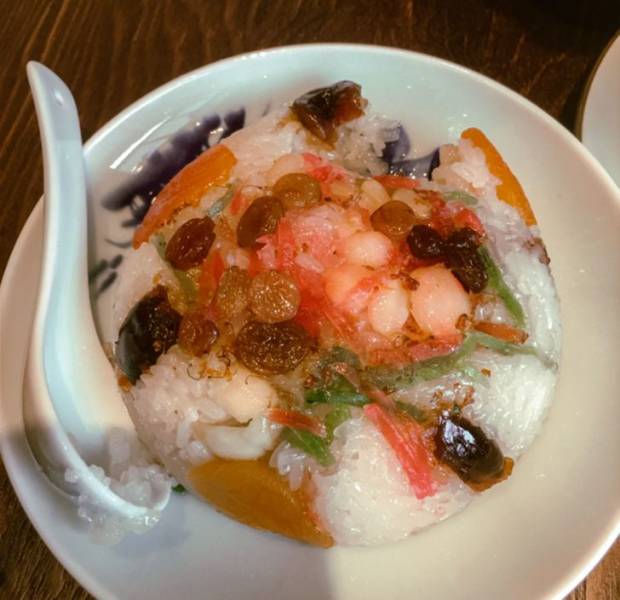
The dish consists of glutinous rice with a combination of 8 fruits that, as the Chinese believe, provide good health. They are called treasures and typically consist of dried red dates, lotus seeds, plums, winter melon, dried longan, red bean paste, various beans, and nuts.
Mexico — Tamales

Loved by Mesoamericans, this popular treat is made from a corn-based dough that is wrapped in a banana leaf and steamed. Fillings like meat, cheese, veggies, and chili peppers can be added to create a richer taste.
Bengal — Chingri malai curry
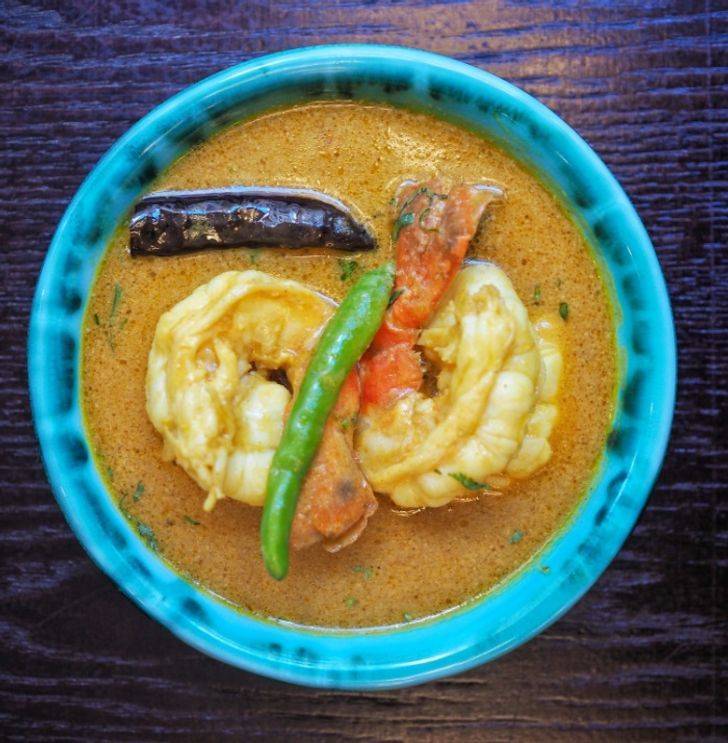
Also known a prawn malai curry, this dish is extremely popular in Bengal. It consists of a curry base made from coconut milk and spices, with shrimp. Bengals also serve it during their weddings and at other yearly celebrations.
Ireland — Mince pies
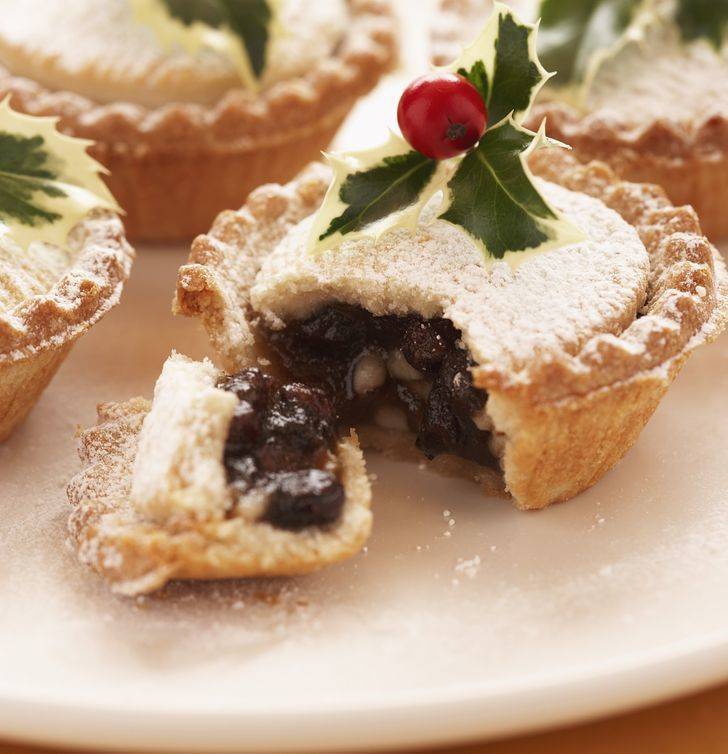
This dessert originally came from England, where it’s just as popular. The filling for this dessert is called “mincemeat,” but it may contain no meat at all. Instead, a mix of various fruits, juices, or vegetables might be used to stuff these pies.
South Korea — Kimchi dumplings
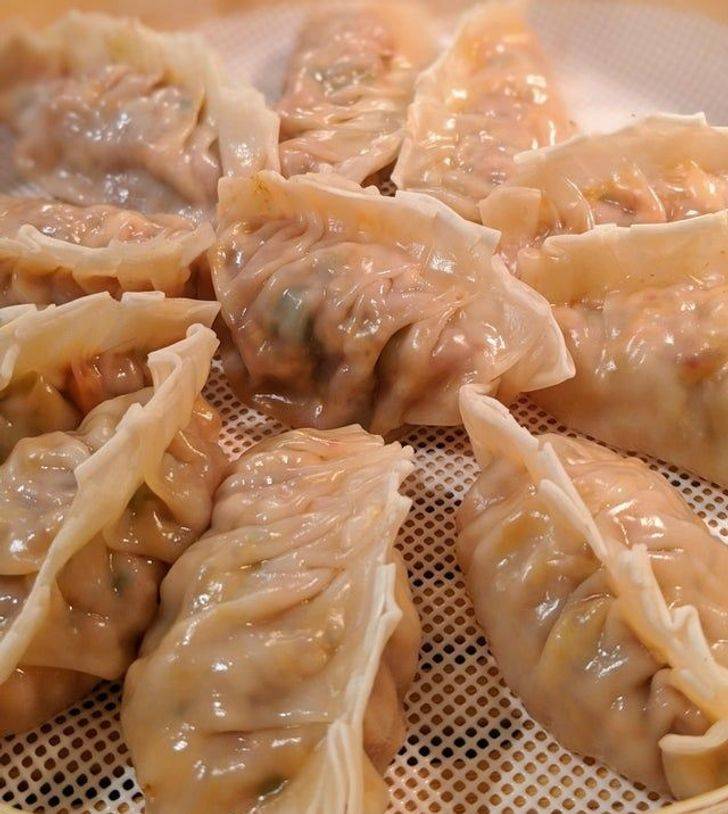
There are many fillings that are used in Korean dumplings (or mandu), like pork or tofu, but one of the most popular ones is kimchi, which is made from fermented napa cabbage. The dumplings are steamed or boiled and then added into manduguk — a Korean dumpling soup.
Argentina — Crepe tower

Torre de panqueques, as this dish is called in Spanish, is usually served cold. This appetizer consists of alternating layers of crepes, ham, cheeses, salad leaves, eggs, and veggies.
Jamaica — Glazed baked ham
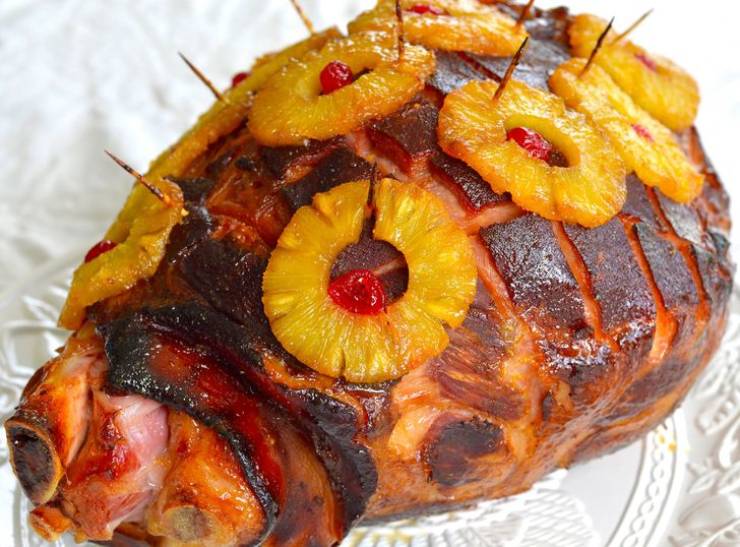
Jamaicans traditionally enjoy this dish twice a year — on Christmas and on Easter. They usually use cranberry sauce, orange, pineapple, and lemon juices, brown sugar, and mustard for the glaze and sometimes they decorate the meat with pineapples too.
Peru — Spiced hot chocolate
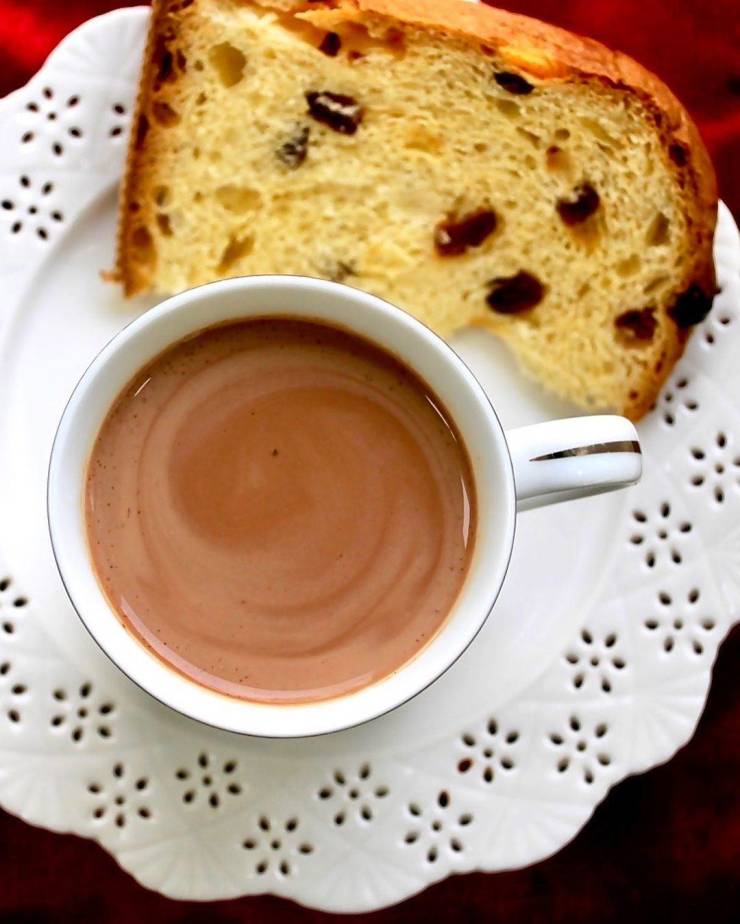
This drink is way creamier and richer than the ordinary hot chocolate we know. To make it, regular milk is mixed with evaporated and sweetened condensed milk. Then cocoa, chocolate, and a mix of spices are added to create an unforgettable taste.
Southern Italy — Feast of the Seven Fishes
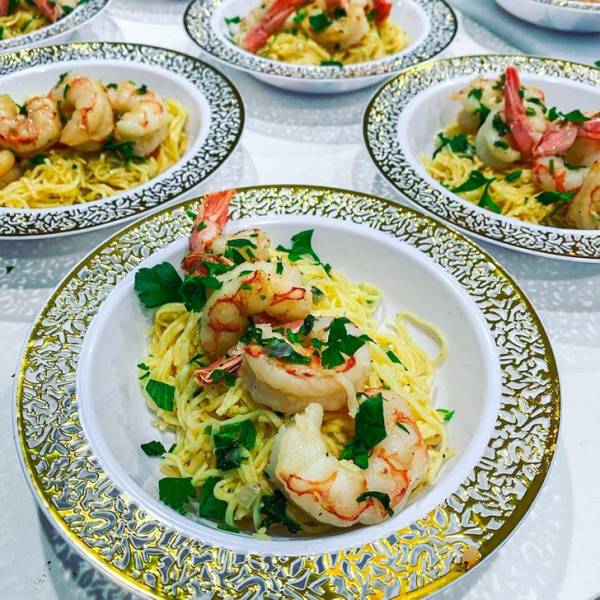
Italians call it Festa dei sette pesci, and it’s a traditional dinner consisting of 7 different fish dishes. Eating seafood on Christmas comes from a long tradition of abstaining from eating meat on the eve of a feast day.
Ethiopia — Doro Wat
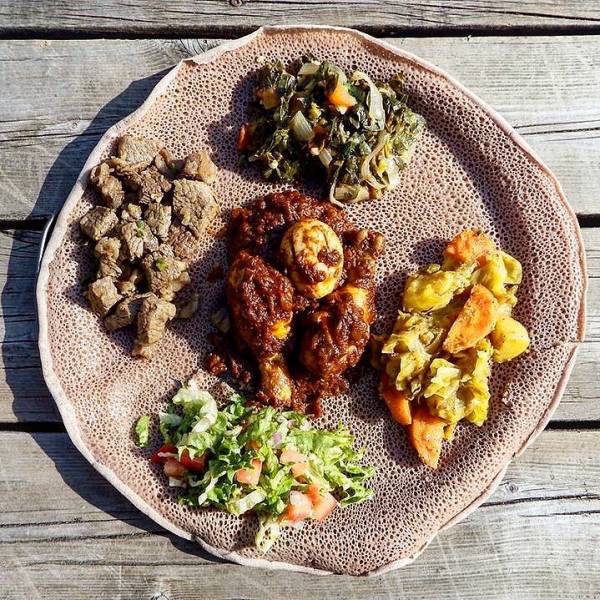
This stew is made with chicken in addition to many different spices that make it extremely hot. It’s served on a flatbread called injera that’s made from a fermented batter.
Lithuania — Poppy milk
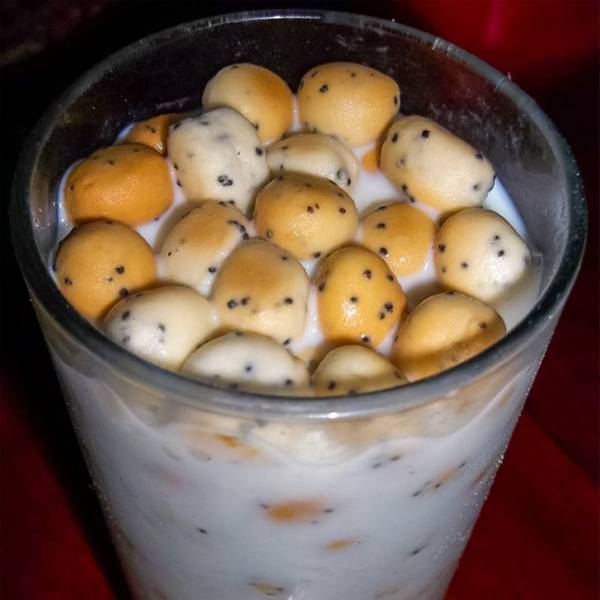
This dessert can be either drank from a glass or eaten like a soup, and it is one of the dishes that is eaten during a traditional Lithuanian Christmas Eve dinner. To prepare it, the poppy seeds get boiled in hot water and then strained. The drink can be mixed with sugar and some poppy seed pastries to make it even more enjoyable.
Russia — Herring under a fur coat
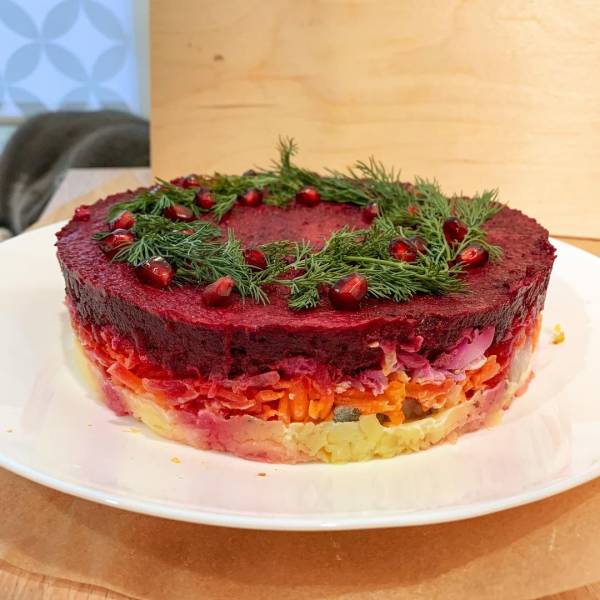
This layered salad is loved by many families in Russia, as well as in Belarus, Ukraine, and Kazakhstan. The dish usually consists of layers of herring, boiled potatoes, carrots, apples, and onions, topped with beetroots and mayonnaise, which give it this purple color.
Canada — Brussels sprouts
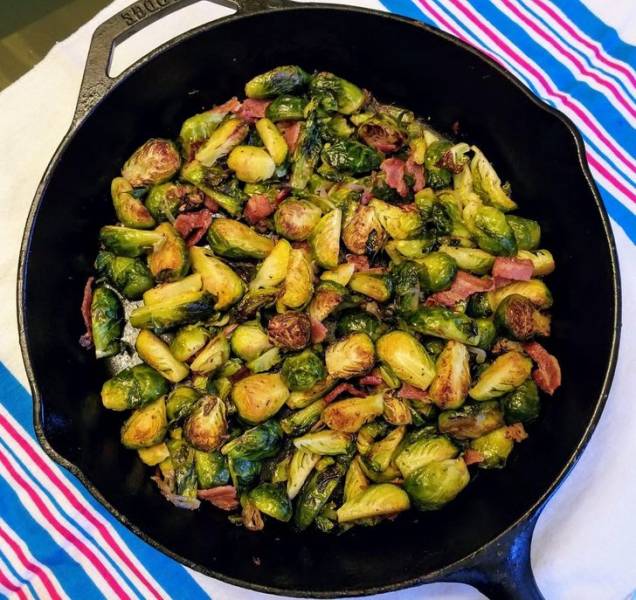
Winter and Christmas holidays also mean the beginning of Brussels sprout season for many Canadians. Apparently, this vegetable is delicious when cooked with maple syrup, bacon, and pecans.
Portugal — Aletria
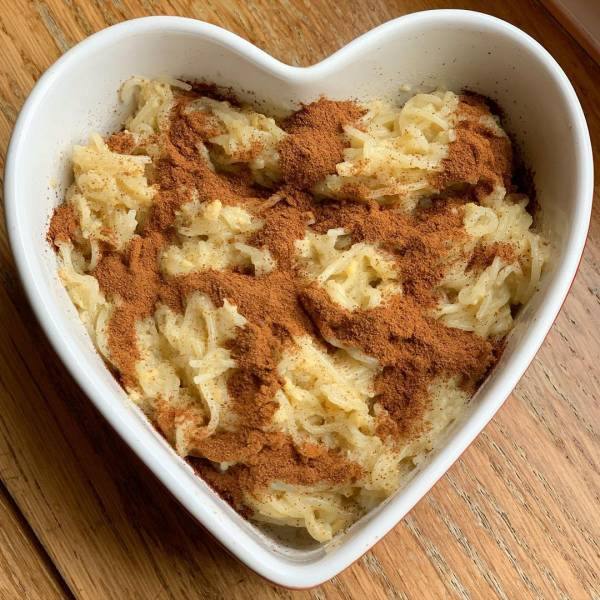
The sweet angel hair dessert is made from fine vermicelli, milk, eggs, and sugar. It’s the perfect treat for those who love pasta and sweets, combined all into one.
Romania — Piftie

This dish is made from meat like pork or chicken, mixed with various vegetables, eggs, and garlic, that is then put into a meat stock. After being refrigerated the stock turns into a jelly and holds its shape.
Belgium — Speculaas
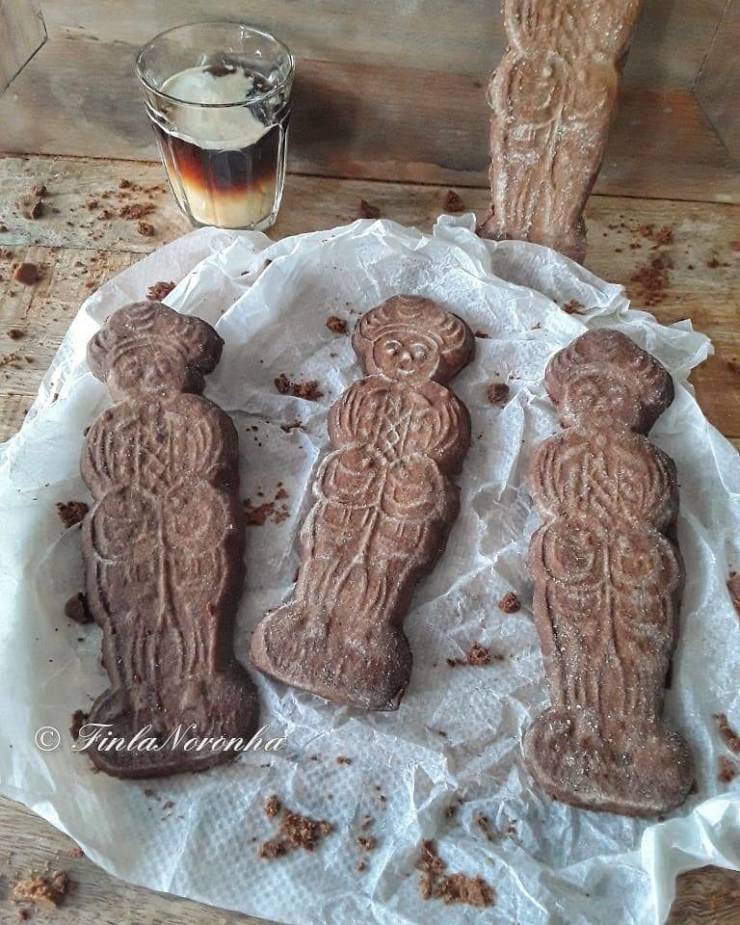
This is a type of traditional shortbread ginger cookie that is also very popular in the Netherlands, Luxembourg, Germany, and Austria. They are made to be very thin and crunchy and traditionally are made in the shape of some kind of figure.
Hungary — Fisherman’s soup
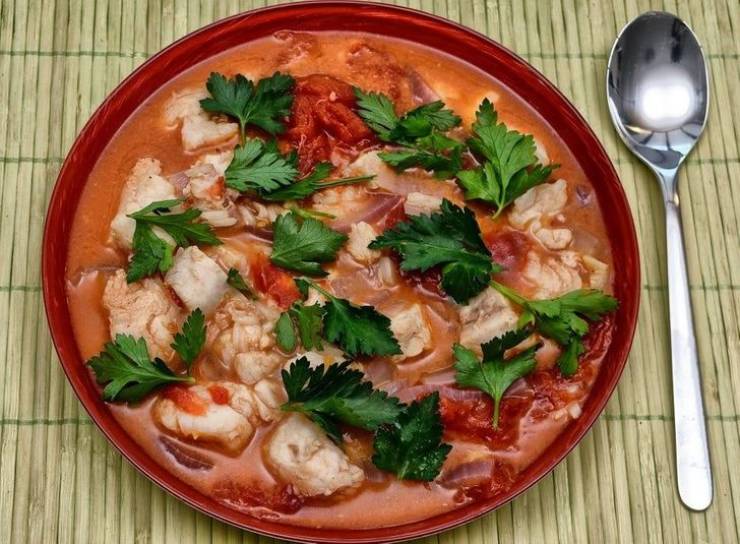
Hot and spicy, with paprika, carp, or other river fish, this bright red folk soup brings warmth to Hungarians during the wintertime. It’s said that this dish is one of the spiciest on the European continent.
Norway — Wreath cake
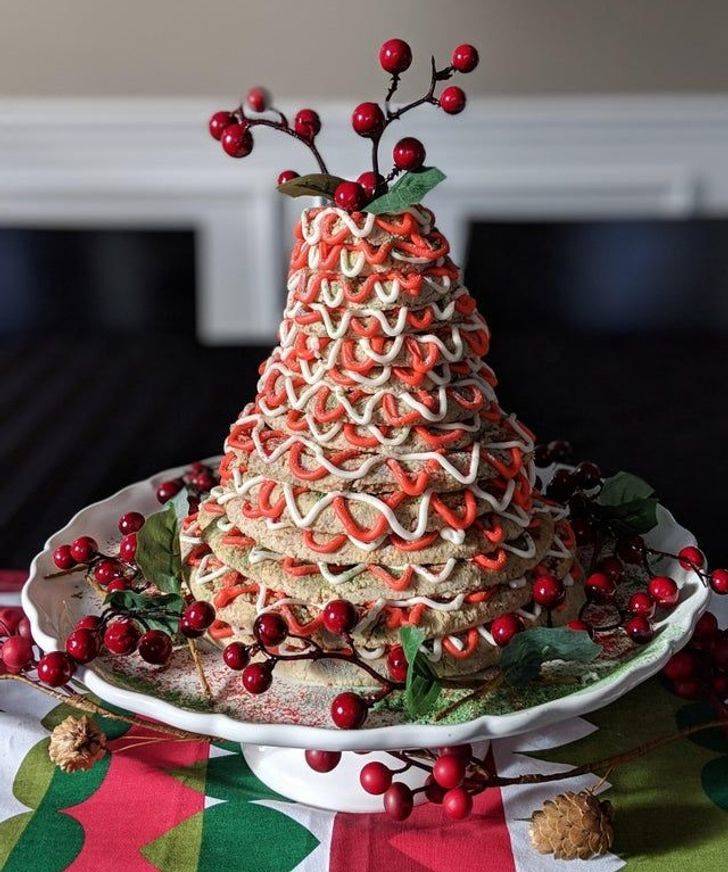
Kransekake is baked during various holidays and special occasions like Christmas, New Year’s Eve, and weddings in Norway and Denmark, and has been around since the 18th century! Traditionally, 18 cookie rings made from almond flour are layered on top of each other and decorated with sugar icing.
Brazil — Rabanada
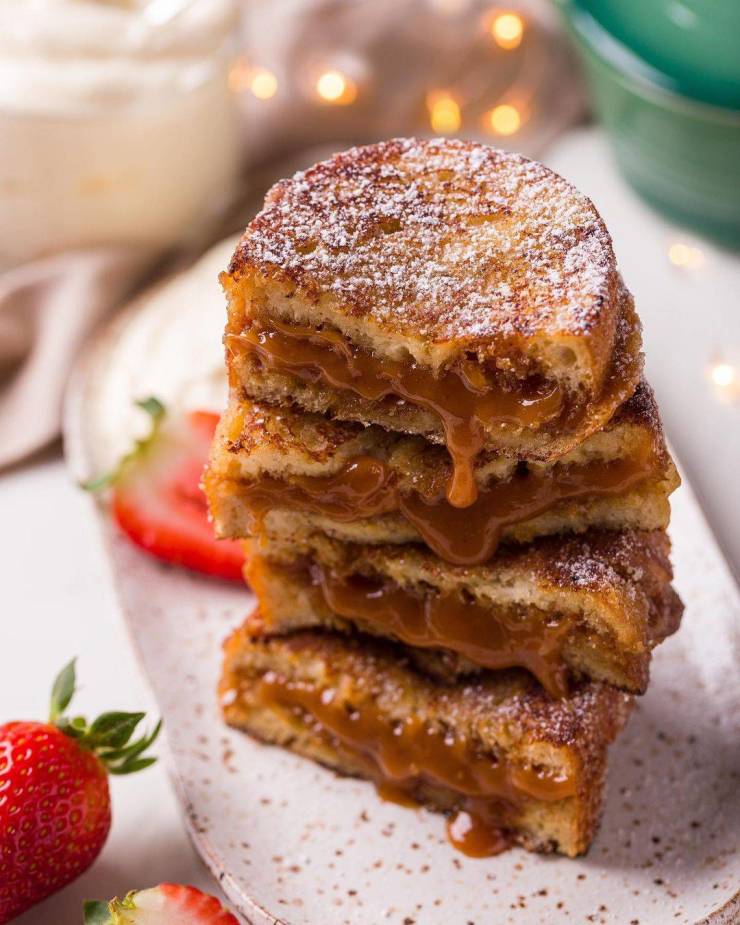
Brazilians adapted the famous dish, French toast, and brought it to their Christmas tables. This dessert is prepared with fresh crusty bread, eggs, and sweetened condensed milk — then it’s deep-fried in oil. Traditionally, rabanadas are sprinkled with sugar and cinnamon before being served.
 Barnorama All Fun In The Barn
Barnorama All Fun In The Barn